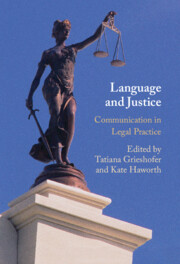Refine listing
Actions for selected content:
1299955 results in Books

Sweet Home Feliciana
- Family, Slavery, and the Hauntings of History
- Coming soon
-
- Expected online publication date:
- March 2026
- Print publication:
- 05 March 2026
-
- Book
- Export citation

The Spatial Dimension In Environmental and Resource Economics
- Coming soon
-
- Expected online publication date:
- March 2026
- Print publication:
- 31 March 2026
-
- Element
- Export citation

Four Centuries of Women's Musical Salons
- A Cross-Cultural History
- Coming soon
-
- Expected online publication date:
- March 2026
- Print publication:
- 31 March 2026
-
- Book
- Export citation

The Invention of Technology
- An Intellectual History with Andre Leroi-Gourhan
- Coming soon
-
- Expected online publication date:
- March 2026
- Print publication:
- 31 March 2026
-
- Book
- Export citation

Liberty, Solidarity and Community
- Capitalism and European Integration, 1945 to the Present
- Coming soon
-
- Expected online publication date:
- March 2026
- Print publication:
- 31 March 2026
-
- Book
- Export citation

PROMPT Course Manual
- Coming soon
-
- Expected online publication date:
- March 2026
- Print publication:
- 31 March 2026
-
- Book
- Export citation

Accountability Shock
- Why Transitional Justice Prevents Criminal Wars in New Democracies
- Coming soon
-
- Expected online publication date:
- March 2026
- Print publication:
- 31 March 2026
-
- Book
- Export citation

Language and Justice
- Communication in Legal Practice
- Coming soon
-
- Expected online publication date:
- March 2026
- Print publication:
- 31 March 2026
-
- Book
- Export citation
Diagnostic Pediatric Hematopathology
- Coming soon
-
- Expected online publication date:
- March 2026
- Print publication:
- 31 March 2026
-
- Book
- Export citation

An Introduction to Chinese Linguistics
- Coming soon
-
- Expected online publication date:
- March 2026
- Print publication:
- 31 March 2026
-
- Textbook
- Export citation

Locally Flat Embeddings of 3-Manifolds in S4
- Coming soon
-
- Expected online publication date:
- March 2026
- Print publication:
- 31 March 2026
-
- Book
- Export citation

The Judgment of the Provinces
- The Roman Empire and the Origins of Law and Society
- Coming soon
-
- Expected online publication date:
- March 2026
- Print publication:
- 31 March 2026
-
- Book
- Export citation

Reluctant Abolitionists
- Britain and the End of the Colonial Death Penalty
- Coming soon
-
- Expected online publication date:
- March 2026
- Print publication:
- 31 March 2026
-
- Book
- Export citation

Many-Body Green's Functions for Time-Dependent Problems
- Coming soon
-
- Expected online publication date:
- March 2026
- Print publication:
- 31 March 2026
-
- Book
- Export citation
Navigating the Souring Seas
- The Global Experimentalist Governance of Ocean Acidification
- Coming soon
-
- Expected online publication date:
- March 2026
- Print publication:
- 31 March 2026
-
- Book
- Export citation

Science of the Supernatural
- Critical Thinking for the Mind and Brain
- Coming soon
-
- Expected online publication date:
- March 2026
- Print publication:
- 31 March 2026
-
- Textbook
- Export citation

A Theology of Becoming
- Body, Blood, Birth, and Sacrament
- Coming soon
-
- Expected online publication date:
- March 2026
- Print publication:
- 30 April 2026
-
- Element
- Export citation
Collaboration, Technologies, and the History of Shakespearean Bibliography
- Coming soon
-
- Expected online publication date:
- March 2026
- Print publication:
- 31 March 2026
-
- Element
- Export citation
Kant on Property Rights and International Law
- Coming soon
-
- Expected online publication date:
- March 2026
- Print publication:
- 31 March 2026
-
- Element
- Export citation

Chinese Feminisms and The Vagina Monologues
- Coming soon
-
- Expected online publication date:
- March 2026
- Print publication:
- 31 March 2026
-
- Element
- Export citation
